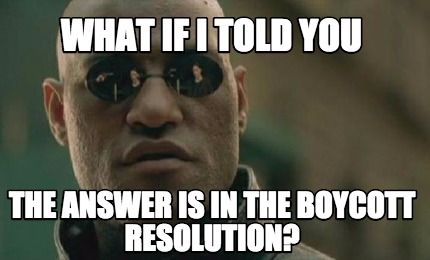This is the third post in a three-post series of personal reflections on the AAA boycott vote. The first post discussed my own childhood Zionist education, while the second post addressed the false claim that the boycott unfairly singles out Israel.
Last November anthropologists attending the AAA business meeting in Denver voted by an astounding 1040-136 to endorse the resolution to boycott Israeli academic institutions, but this was just a resolution to put the boycott to a vote, not an actual endorsement of that boycott by the entire AAA membership. The actual voting is now taking place by electronic ballot. It started on April 15th and lasts until May 31. For this reason it is crucial that all AAA members, whether or not they support the boycott, vote to make their voices heard in this historic decision. Because each update to the AAA website seems to make it even more difficult to navigate, please read this useful guide on how to vote.
It’s in the Resolution
What do we mean by an academic boycott anyway?
What if I told you that the answer can be found in the the boycott resolution?

First and foremost, it can’t be emphasized enough that the boycott only applies to institutions, not to individuals. Continue reading